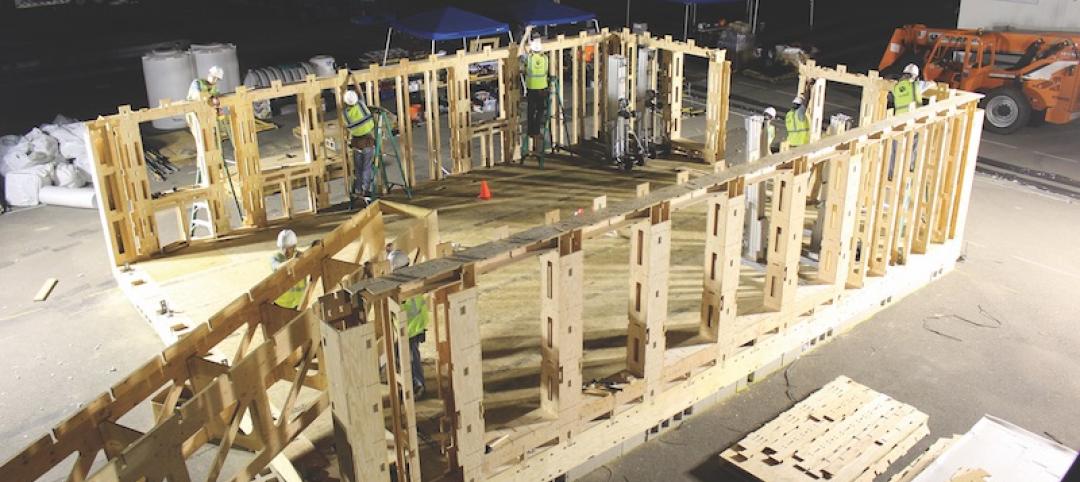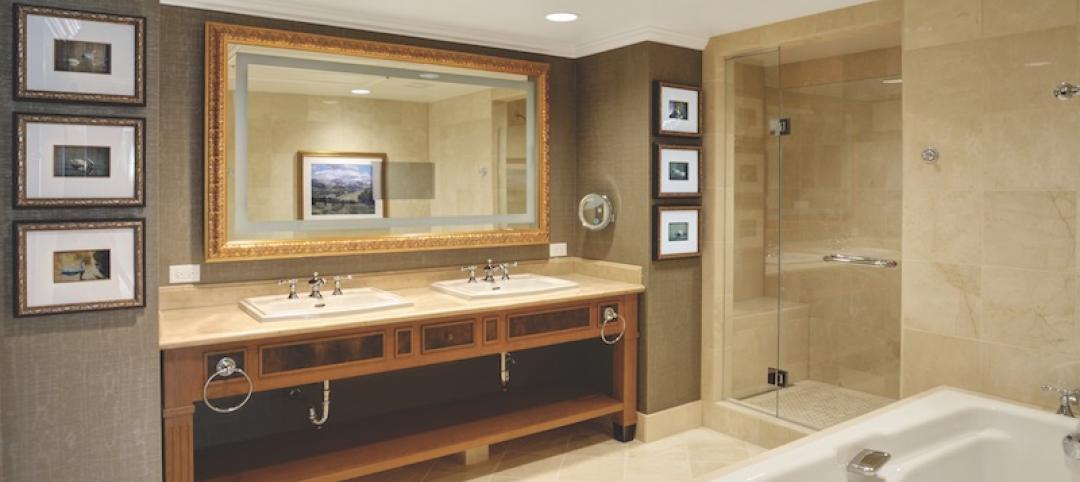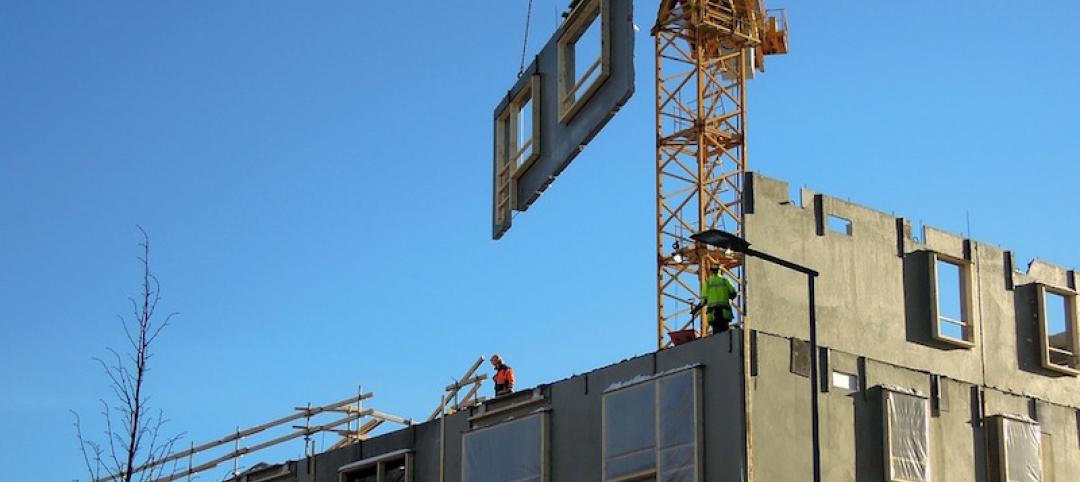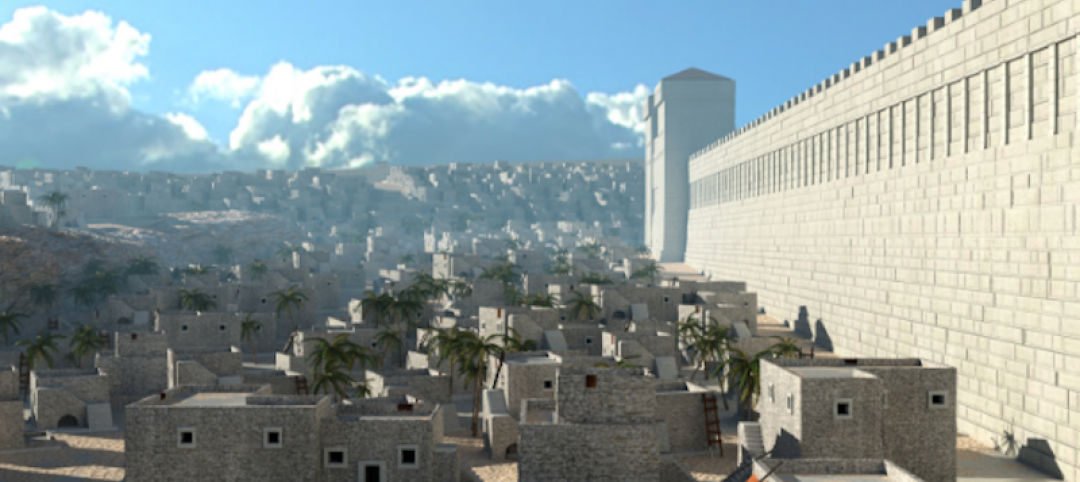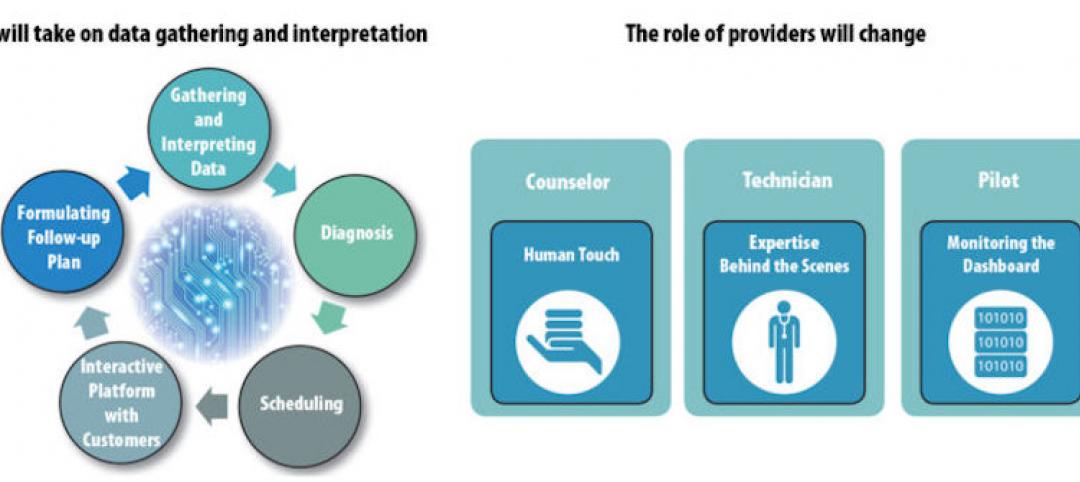 |
|
Finishes for the Eisenhower Theater were selected to modernize its look and feel and add elegance to what had been a dull space. |
The Eisenhower Theater in the John F. Kennedy Center for the Performing Arts in Washington, D.C., opened in 1971. By the turn of the century, after three-plus decades of heavy use, the 1,142-seat box-within-a-box playhouse on the Potomac was starting to show its age. Poor lighting and tired, worn finishes created a gloomy atmosphere. The onstage HVAC system couldn't even be used during performances, and there were tons of asbestos in the ceiling.
Two years ago, the local office of Quinn Evans | Architects was brought in to work with the Kennedy Center staff and theater users on a renovation. Because the theater hosts a variety of productions—plays, musicals, and contemporary dance—its many stakeholders—from programming and special events to the handicapped accessibility department—had a wide variety of needs.
These included modernizing the lighting and audio systems, expanding the orchestra pit, improving handicapped accessibility, abating the asbestos, upgrading the dressing rooms, and streamlining theater operations—not to mention updating the theater's aesthetics to modern standards. The Building Team was further constrained by having to maintain the seating capacity while making no significant changes to the structural box that acoustically isolates the theater.
Using a Revit building information model, the architects detailed the entire design down to the individual seat and worked closely with construction manager Whiting-Turner to discover not only the right design and constructability solutions, but also to estimate real-world costs and stay within the project's $17.9 million budget.
To solve the accessibility problem, ramps were introduced at the box tier through the new space available between diagonal bracing members, and the seating area was expanded to accommodate wheelchair seating. To enhance the intimacy of the theater, the balcony fronts at both the box tier and balcony levels were extended to create a softer line around the audience. Total seating capacity was actually increased by 24 seats.
New lighting positions, theatrical rails, dressing rooms, a new audio system, enhancements to the existing HVAC system, and control rooms were all designed to be hidden from view behind the theater's new walls. —Jeffrey Yoders, Senior Associate Editor
Related Stories
Great Solutions | May 5, 2017
No nails necessary: Framing system comes together with steel zip ties and screws
Clemson University’s School of Architecture develops a patent-pending construction method that is gaining attention for its potential use in rapid, low-tech sustainable housing.
Building Technology | May 5, 2017
Tips for designing and building with bathroom pods
Advancements in building technology and ongoing concerns about labor shortages make prefabrication options such as bathrooms pods primed for an awakening.
Building Technology | Apr 21, 2017
AIA selects 2016 Upjohn Research Initiative Projects
Grants awarded to initiatives that study various aspects of design within the built environment.
Building Technology | Mar 9, 2017
Prefabrication's predicament: It's much harder than it looks
Many of the nation’s largest contractors, including Gilbane, Mortensen, Skanska, and Turner, have been utilizing prefab techniques on select projects for a decade or more.
Great Solutions | Mar 8, 2017
Pop-out balcony is a breath of fresh air for stuffy hotel rooms and apartments
In less than one minute, Bloomframe transforms from an insulated picture window to an open balcony.
Building Materials | Feb 15, 2017
New metamaterial cools roofs without any energy consumption
The material is barely thicker than aluminum foil and can be economically manufactured for large-scale residential and commercial applications.
Building Technology | Feb 13, 2017
Denver’s ‘smart neighborhood’ will be packed with futuristic technology
The neighborhood will become a test lab for innovative technology.
Virtual Reality | Feb 1, 2017
Tour ancient buildings and cities as they were when new with Lithodomos VR
An Australian archeological startup is bringing the ancient world to a VR headset near you.
Building Technology | Jan 30, 2017
Machine learning could help buildings notify occupants about critical systems failures before they happen
Data from sensors built into HVAC units paired with a machine learning algorithm predicted 76 out of 124 real faults for an Italian hospital.
Building Technology | Jan 27, 2017
The driverless clinic: How buildings powered by AI can help promote wellness and enhance human connections
In the future, we envision that the smart technology in our phones will be embedded in the items we wear and the objects we use.


